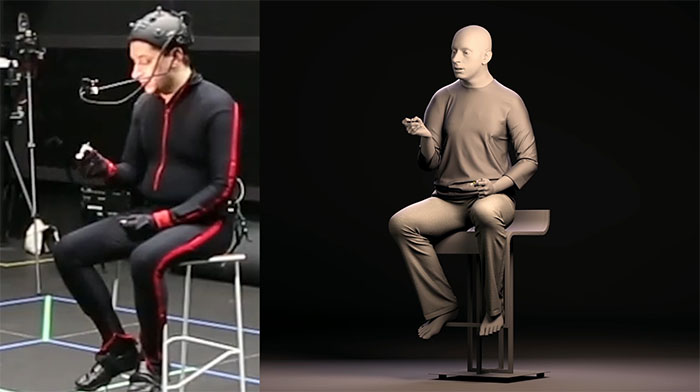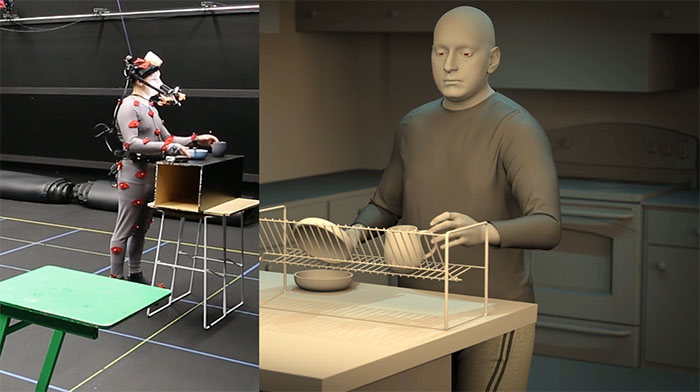Articles & Papers | PhD
Acting and Its Double: A Practice-Led Investigation of the Nature of Acting Within Performance Capture (2021)
PhD Supervised by Dr Stefan Marks and Dr Frances Joseph
Full thesis available through ResearchGate.

Abstract: This research deepens our understanding, as animators, actors, audiences, and academics, of how we see the practice of acting in performance capture (PeCap). While exploring the intersections between acting and animation, a central question emerges: what does acting become when the product of acting starts as data and finishes as computer-generated images that preserve the source-actor’s “original” performance to varying degrees? This primary question is interrogated through a practice-led inquiry in the form of 3D animation experiments that seek to clarify the following sub-questions:
- What is the nature of acting within the contexts of animation and performance capture?
- What is the potential for a knowledge of acting to have on the practice of animating, and for a knowledge of animation to have on the practice of acting?
- What is the role of the animator in interpreting an actor’s performance data and how does this affect our understanding of the authorship of a given performance?
This thesis is interdisciplinary and sits at the intersection between theories of acting, animation, film, and psychology. Additionally, this thesis engages with phenomenology and auto-ethnography to explore acting in performance capture from the perspective of a single individual as the actor, PeCap artist, and animator. This type of first-person experience-based insight is often missing from purely theoretical discussions about acting in performance capture and animation, and helps to provide a clearer understanding of the contributions of each creative role to the final PeCap result. This research provides a strong basis for the necessity of a paradigm revision for how acting is produced within a PeCap context.
